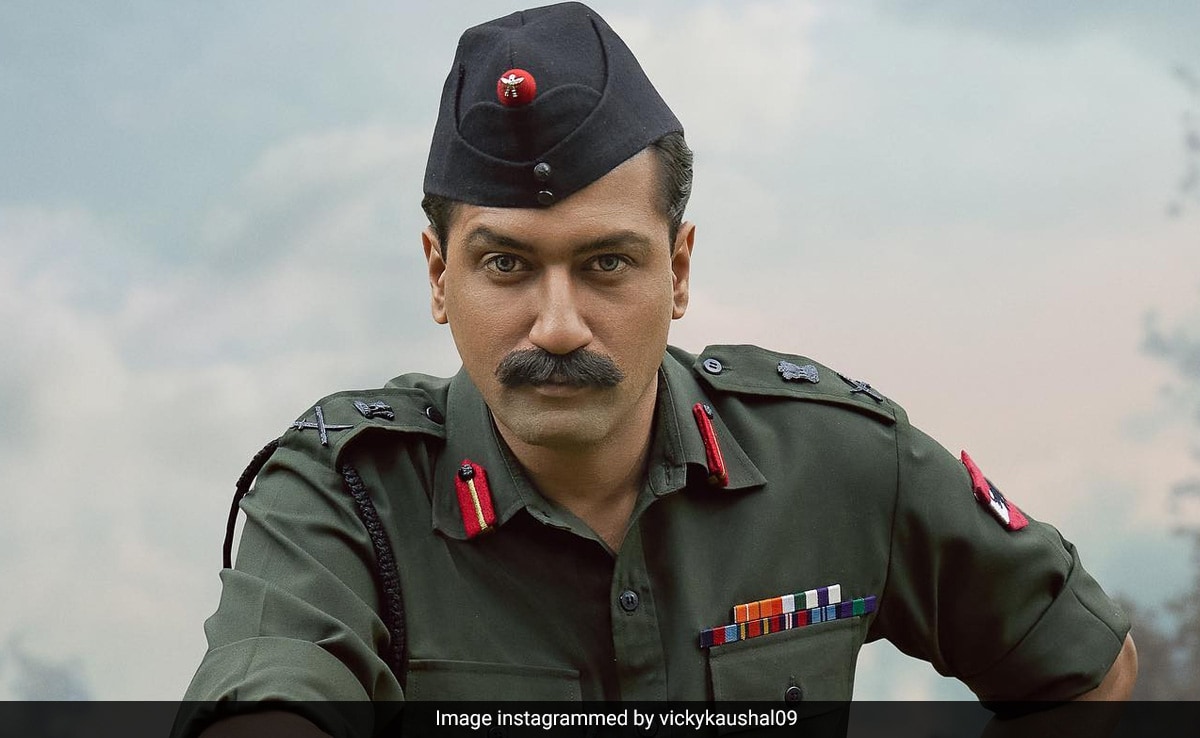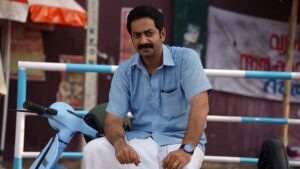Driven by the spirited performance of Vicky Kaushal

Playing on a vast and varied canvas, Sam Bahadur A lifetime crams into its two and a half hours. The film covers four decades of active military service, five wars, counter-insurgency operations and brushes with prime ministers. Inevitably, Meghna Gulzar’s ambitious biopic feels a bit rushed. But it definitely has a dull moment.
The film fires up the issues it foregrounds. Driven by a high-spirited performance by Vicky Kaushal, it delivers a rounded, thrilling portrait of Field Marshal Sam Hormusji Framji Jamshedji Manekash, a gentleman and an officer with tenacity and valor, joie de vivre, adversarial strength and an unwavering sense of purpose. The stuff of legend.
An intense character study more than an action-heavy war movie, Sam Bahadur Hits most of its targets. It blends the story of an illustrious life – it’s not exactly a cradle-to-grave affair though it begins with the hero as a newborn in a crib – with the exploits of a legendary soldier who brought extraordinary skills to bear on his task as a soldier and a leader.
The screenplay by Bhavani Iyer, Shantanu Srivastava and Meghna Gulzar perfectly picks up the events and encounters that help give the film a vibrant, lively quality. As much about a nation as it is about an individual, Sam Bahadur has the breadth of an epic and the delicate touch of an intimate history.
The film has elliptical sections, from the early 1940s (when Japanese troops advanced into Burma) to the early 1970s (when the Indian Army entered the Bangladesh Liberation War). But however glaring the gaps, they don’t detract from the consistently arresting story sweep.
The screenwriters have grafted enough narrative meat into the short storyline to be able to do justice to the charismatic general whose career it explores in the context of the nation’s eventful history before and after independence.
I fight to win, Manekash often insists, often in so many words. It might make him sound like an indomitable Hindi action movie hero. But the director made a point of not turning the hero into a larger-than-life figure — which he probably was in their lead.
Leaving hysteria out of history, he presents the great soldier not as a single-hued, punchline-spouting general but as a man of conviction – a man of conviction – intelligent, confident and unflappable – and a master strategist who spoke his mind.
D Sam Bahadur What we see on screen is not a Bollywoodized version of a hero from the pages of Indian military history, but a man rooted in the real world but endowed with exceptional intelligence and the courage of conviction.
What’s in a name? In the case of Sam Manekash, as the film tells us about him, there is much more. In the opening sequence, we learn that Sam’s parents named him Cyrus but were forced to change his name when a thief named Cyrus was caught in the neighborhood.
In the next scene – this is repeated later in the film – an 8th Gorkha Rifles jawan, when Manekash asks him if he knows the name of the Indian army chief, says “Sam Bahadur”. Appropriate moniker sticks.
Played with panache by Vicky Kaushal, who walks a tightrope between caricature and authenticity and never leans towards the former, Sam Manekash emerges as a man and an icon who is immensely charming and boldly assertive.
Slowing down at a frenetic pace, the dialogue delivery is vaguely reminiscent Hum donoDev Anand’s demeanor and mannerisms that exude both hauteur and friendliness – Kaushal brings the portrait to life with a distinctive approach far from his own.
One of the most interesting aspects Sam Bahadur It eschews flag-waving militarism while celebrating the bravery of India’s soldiers. It is through life-threatening minefields that infantry soldiers must negotiate gently and thoughtfully in the line of duty. The film has plenty of fight scenes and punchlines, but they don’t overshadow the less glamorous elements with which lively biopics are built.
Sam Bahadur It is not just about a man delivering rousing speeches to lift the spirits of his men or to stamp his personality on the army under him. It is also about the human and personal aspects of a general’s life, which is underscored in moments with his wife Seelu (Sanya Malhotra) and family.
Since the film harkens back to a time when love of nation was not colored in any way by religious exceptionalism, it demonstrates an ethos that focused on the celebration of unity in diversity, the foundation of the idea of India. The battle cries of different regiments (in the film’s climactic passage) point to the diverse backdrop of Indian soldiers marching towards a common goal.
In a remarkably resonant scene, the court of inquiry accuses Manekash of being anti-national because the Defense Academy he presides over has portraits of British soldiers instead of Indian political leaders. The general’s response to the flimsy accusation is illuminating. The academy trains soldiers, not politicians, he stressed.
Sam Bahadur The sketchy portrayal of Jawaharlal Nehru (played by Neeraj Kavi) slips a bit. Indira Gandhi (Fatima Sana Shaikh) receives very good treatment. Not only does India’s third prime minister have a major role in the narrative, he also has a scene or two where he almost steals Sam’s thunder.
In one sequence, Mrs. Gandhi put Richard Nixon’s Secretary of State Henry Kissinger in his place (using Army Chief Manekash as his trump card) when he threatened India with dire consequences if it attacked Pakistan on the Eastern Front.
Newsreel footage of Sheikh Mujibur Rahman inciting his people to revolt, sequences of Dhaka University students being shot dead by the Pakistan Army, and flashes of Manekash’s friend General Yahya Khan (Mohammed Zeeshan Ayub) at their pre-department defense academy, plan Bangladesh to provoke a conflict with India. War is woven into the lead. So, Sam Bahadur is not just talk. There’s enough here to sustain the entire film.
It would be easy to describe Sam Bahadur as a Vicky Kaushal show as it dominates every major scene in the film. But for Meghna Gulzar’s delicate balance between ambition and restraint, neither the passionate central performance nor its emotional (and cinematic) payoff would have been as remarkable.



